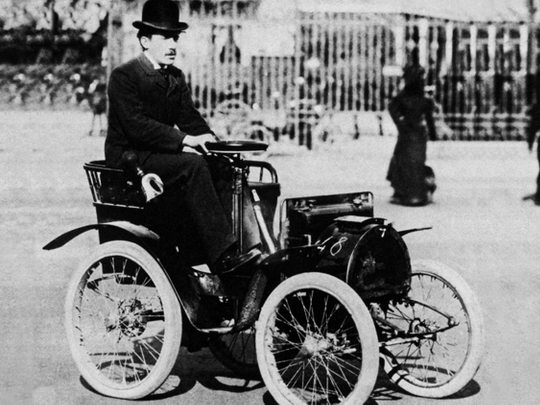
Louis Renault's life and career were pretty much defined by the two World Wars. While the first one made him one of the biggest tycoons in France, the second spelt his doom leading to his arrest and subsequent death under mysterious circumstances. Not many industrialists would have seen their fortunes fluctuating as wildly in their lifetime as Louis Renault did.
His contribution to the country's win in the First World War, which included the revolutionary FT-17 tank, earned him the prestigious Legion of Honour and his business flourished at an unbelievable pace.
And as luck would have it, it was his contribution to military development in the next world war — this time for the occupying Nazi forces — that proved his undoing after being accused of collaborating with the enemies.
He saw his entire business empire appropriated and nationalised by the government and within a span of just four weeks, was jailed, allegedly tortured, and died.
Despite this blemish towards the end of a life that many feel was wrongly maligned, there's no disputing the fact that together with André Citroën, Louis Renault played an extremely important role in building up the French automobile industry into what it is today.
His interest for engineering and the mechanics of automobiles started at a very early age and in 1898, at the age of 21, Renault built a two-seat car, the Voiturette, also known as the Renault Type A, which featured a three-speed gearbox with a direct drive system which he later patented.
After a casual demonstration of the car on the streets of Paris for his friends, he got more than a dozen orders. This led him to set up a car manufacturing company, Renault Frères, together with his brothers Marcel and Fernand in 1899. This also made Renault realise that showcasing the car's capabilities is the best way to get more customers.
That he did with success in the Paris-Toulouse race the very next year and the Paris-Bordeaux and Paris-Berlin races in 1901. These successes did wonders for the brothers who found their business soaring. In 1903, Louis' brother Marcel, who had won the Paris-Vienna race the previous year, died in a crash during the Paris-Madrid race.
Although Louis decided not to race cars ever again, it didn't stop him from going ahead with technological innovations including hydraulic shock absorbers, drum brakes, compressed gas ignition, and a centrifugal supercharger.
Although unwittingly, he provided direction to the post-war European car industry by designing the Juvaquatre, which would form the basis for the iconic and successful Renault 4CV, which came out after his death.
Always suspicious, ruthless and impatient with everyone around him, Renault never had any real friends. Unsurprisingly none of his 40,000 employees liked him. For them, he was the "ogre of Billancourt". But quite ironically, Louis Renault left all his wealth, which was nationalised anyway, to his employees.











